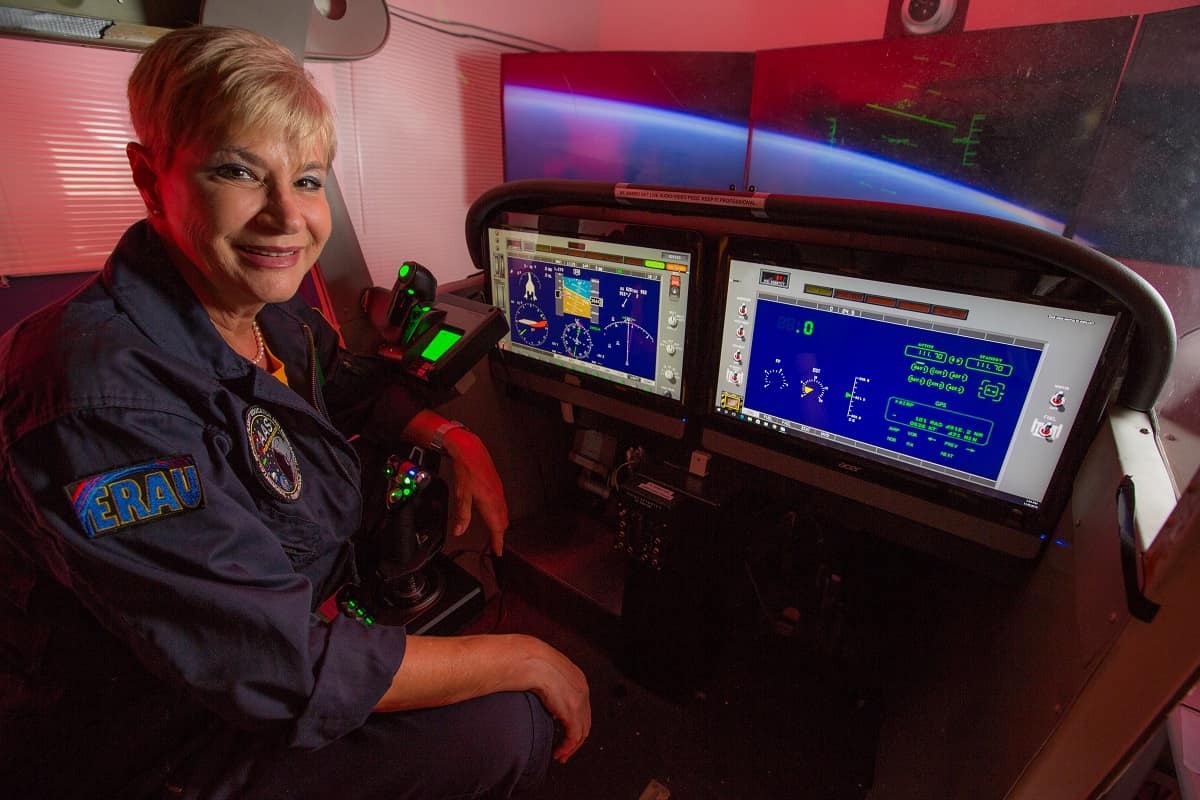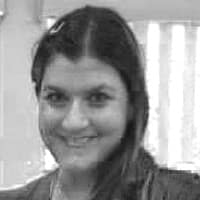Space Craft: Meet a Professor Whose Research is Helping Write the Space Policies and Laws of the Future

Growing up in Florida during the Cuban Missile Crisis, Diane Howard recalls hiding under her desk at school for bomb drills.
But she also remembers her excitement watching space launches from Cape Canaveral. The contrast between those two experiences made a lasting impact on her.
“You would go outside and look up at the sky,” says the assistant professor of commercial space operations at Embry-Riddle Aeronautical University’s Daytona Beach Campus, “and the launches just seemed so much more positive to me and so full of promise.”
Those experiences fueled Howard’s desire to help craft space policies and laws encouraging global cooperation and innovation. Her research focuses on sustainability of space activities, the dynamics of interagency interaction and issues pertaining to all aspects of space traffic management and coordination.
Making Space a Safer Place
Much of Howard’s work is directed at making space activities safer, including getting space vehicles into and out of controlled airspace without disrupting general and commercial flight operations. To that end, Howard is currently principal investigator on a set of projects for the Federal Aviation Administration (FAA) that deals with integrating commercial space activities into the National Airspace System (NAS).
“I think the work that we have been doing with the FAA is pretty groundbreaking,” Howard says, “because the United States has the most developed body of space regulations, and the FAA is the largest aviation navigation space provider globally. Aligning the regulations relevant to all stakeholders is complex.”
Her research aims to provide technical expertise to FAA officials as they plan for an increase in space vehicle operations. Howard’s work includes performing research and analysis of FAA Air Traffic Organization regulations, policies, procedures and orders pertinent to space vehicle operations, as well as international coordination issues for integration of space activities into NAS operations.
She is also working with the FAA to get safety approval for a space flight simulator at the university. Embry-Riddle has the only spaceflight simulator connected to an undergraduate university program, Howard says, and this student-focused, student-driven research offers a unique opportunity for undergraduates to interface with the FAA’s Office of Commercial Space Transportation on a real application in real time.
Teaming Up for The Greater Good
Howard serves as executive secretary of the International Institute of Space Law, and in October 2016, she was a member of the Project PoSSUM (Polar Suborbital Science in the Upper Mesosphere) program, which is training citizen scientist-astronauts to conduct research on commercial space vehicles. She also chairs the annual Space Traffic Management conference at Embry-Riddle’s Daytona Beach Campus and is a private sector adviser/subject matter expert who has worked with the U.S. State Department.
“The original space treaties were written based upon a tenet of international cooperation for the good of all of us,” she says. “There was an understanding that this could be a game changer — and it has been and will continue to be.”
The field of space law and policy is a growing and evolving field, and a lot of questions remain to be answered, she says. Issues like which agency should oversee space activities, such as resource extraction and traffic management; the need for and extent of safety standards; the coordination of activities in orbit; and dealing with debris.
“Trying to manage the overlap between different jurisdictions is far more proactive than allowing conflict to escalate,” Howard says. “It’s counterproductive to allow fear and paranoia to curtail some of the amazing things our technology can make possible.”
"Space always provided this paradigm of hope, positivity and opportunity for likeminded and higher minded individuals to work together towards a common objective.”
A Circuitous Career Trajectory
Despite a lifelong interest in space, Diane Howard’s pursuit of a career in space law came later in life. She was in her early 40s when she left a successful career in the fashion industry to attend law school.
After working as a staff attorney in the Florida appellate courts for several years, Howard decided to specialize in space law and attended McGill University’s Institute of Air and Space Law in Montreal, Canada, where she earned a Master of Laws degree and a Ph.D. Her master’s thesis centered on private space law issues, while her doctoral work focused on effective spaceport regulation.
Initially, she had planned to teach space law at a law school, but that changed after she met Professor Lance Erickson at a conference. Erickson, who spearheaded the commercial space operations program at Embry-Riddle before his recent retirement, encouraged her to join his team.
Howard says she didn’t want to limit herself to simply writing and presenting papers to the legal academic community. Teaching in Embry- Riddle’s interdisciplinary commercial space operations program allows her to make a broader impact and help develop a pipeline of space sector workers who understand responsible behavior in space.
“When students get the big picture, there is nothing better for me than knowing that they get it,” she says. “It’s exciting seeing our students go out into the world and do good things.”

 Melanie Azam
Melanie Azam